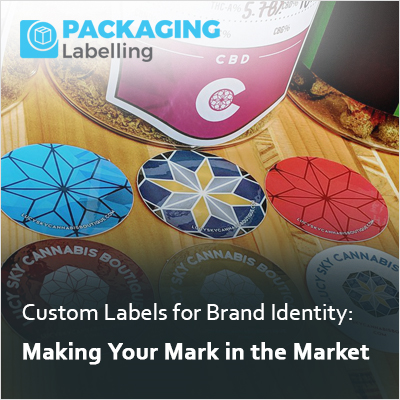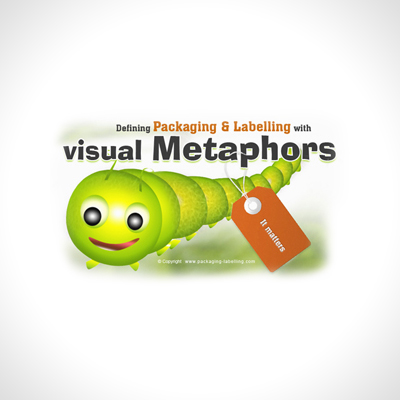Custom Labels for Brand Identity: Making Your Mark in the Market

Introduction:
In today's fiercely competitive market, establishing a strong brand identity is more crucial than ever. One often overlooked yet powerful tool in achieving this is the use of custom labels. These small, seemingly insignificant pieces of material play a significant role in shaping how consumers perceive your brand. In this article, we'll explore the importance of custom labels for brand identity and delve into strategies for creating a lasting impression in the market.
I. Understanding the Importance of Brand Identity
Prior to exploring the impact of personalized labels, it is crucial to grasp the overarching concept of brand identity. Brand identity encompasses the visual and emotional components that set a brand apart from its rivals. This comprises elements such as the logo, color palette, typography, and messaging, all synergizing to form a distinctive and unforgettable brand image.
A strong brand identity not only helps in standing out from the crowd but also fosters trust and loyalty among consumers. It's the foundation upon which successful marketing campaigns, customer relationships, and long-term business success are built.
II. The Power of Custom Labels
Custom labels are an integral part of brand identity, serving as a direct link between the product and the consumer. Let's explore the various ways in which custom labels contribute to making a mark in the market:
1. Visual Appeal:
Custom labels allow for creative expression, enabling brands to design visually appealing and distinctive labels. A well-designed label catches the eye, making the product instantly recognizable on the shelves.
| Also Read: What Could Your Packing Boxes Reveal About Your Brand's Commitment to Quality? |
2. Brand Recognition:
Consistency is key to building brand recognition. Custom labels featuring your brand's logo, colors, and unique design elements help consumers identify your products easily. This recognition is vital in a crowded market where consumers are bombarded with choices.
3. Conveying Brand Values:
Custom labels provide a canvas to communicate your brand's values and personality. Whether it's through eco-friendly symbols, a commitment to quality, or a touch of humor, labels offer a powerful medium to connect with consumers on a deeper level.
4. Product Information:
Beyond aesthetics, custom labels convey essential information about the product. From ingredients and usage instructions to certifications and origin details, labels serve as a quick reference for consumers, building trust through transparency.
| Also Read: The Importance of Clear and Informative Labeling for Consumer Protection |
III. Strategies for Effective Custom Labels
Now that we understand the significance of custom labels, let's delve into strategies for creating labels that leave a lasting impression:
1. Understand Your Target Audience:
Before designing custom labels, it's crucial to have a deep understanding of your target audience. What resonates with them? What colors, fonts, and design elements appeal to them? Tailoring labels to your audience ensures they connect with your brand on a personal level.
2. Consistency across Products:
Maintain a consistent design theme across all your products. This consistency reinforces brand identity and makes it easier for consumers to associate specific design elements with your brand.
3. Choose Quality Materials:
The physical quality of the label matters. Labels that feel cheap or wear easily can negatively impact the perceived value of your product. Invest in high-quality materials that align with your brand positioning.
4. Tell a Story:
Use your labels to tell a story. Whether it's the story of your brand's inception, the sourcing of raw materials, or the craftsmanship behind the product, storytelling creates an emotional connection with consumers.
5. Keep it Simple and Memorable:
While creativity is essential, simplicity should not be overlooked. A cluttered label can confuse consumers and dilute your brand message. Aim for a balance between creativity and clarity to ensure your label is both memorable and easy to understand.
IV. Case Studies: Brands that Nailed Custom Labels
Let's take inspiration from a few brands that have successfully utilized custom labels to enhance their brand identity:
Apple:
Apple's minimalist and sleek product labels perfectly align with the brand's overall design philosophy. The simplicity of the labels enhances the premium feel of the products.
Coca-Cola:
The iconic red label of Coca-Cola is instantly recognizable worldwide. The brand has successfully maintained consistency across its product labels for decades, contributing to its unparalleled brand recognition.
TOMS:
TOMS, known for its commitment to social responsibility, incorporates this message into its labels. The "One for One" concept is prominently featured, conveying the brand's dedication to making a positive impact.
V. The Future of Custom Labels in Branding
As technology continues to advance, the future of custom labels holds exciting possibilities. Augmented reality (AR) labels, interactive packaging, and sustainable materials are just a few trends that are gaining traction. Brands that embrace these innovations will not only enhance their identity but also stay ahead in the dynamic market landscape.
Conclusion
In conclusion, custom labels are a powerful tool for shaping and reinforcing brand identity. From visual appeal to conveying brand values, these seemingly small details play a significant role in influencing consumer perception. By understanding your audience, maintaining consistency, and embracing innovation, you can leverage custom labels to make a lasting mark in the market. As the business landscape evolves, brands that invest in thoughtful and strategic label design will undoubtedly stand out and leave a memorable imprint in the minds of consumers.









